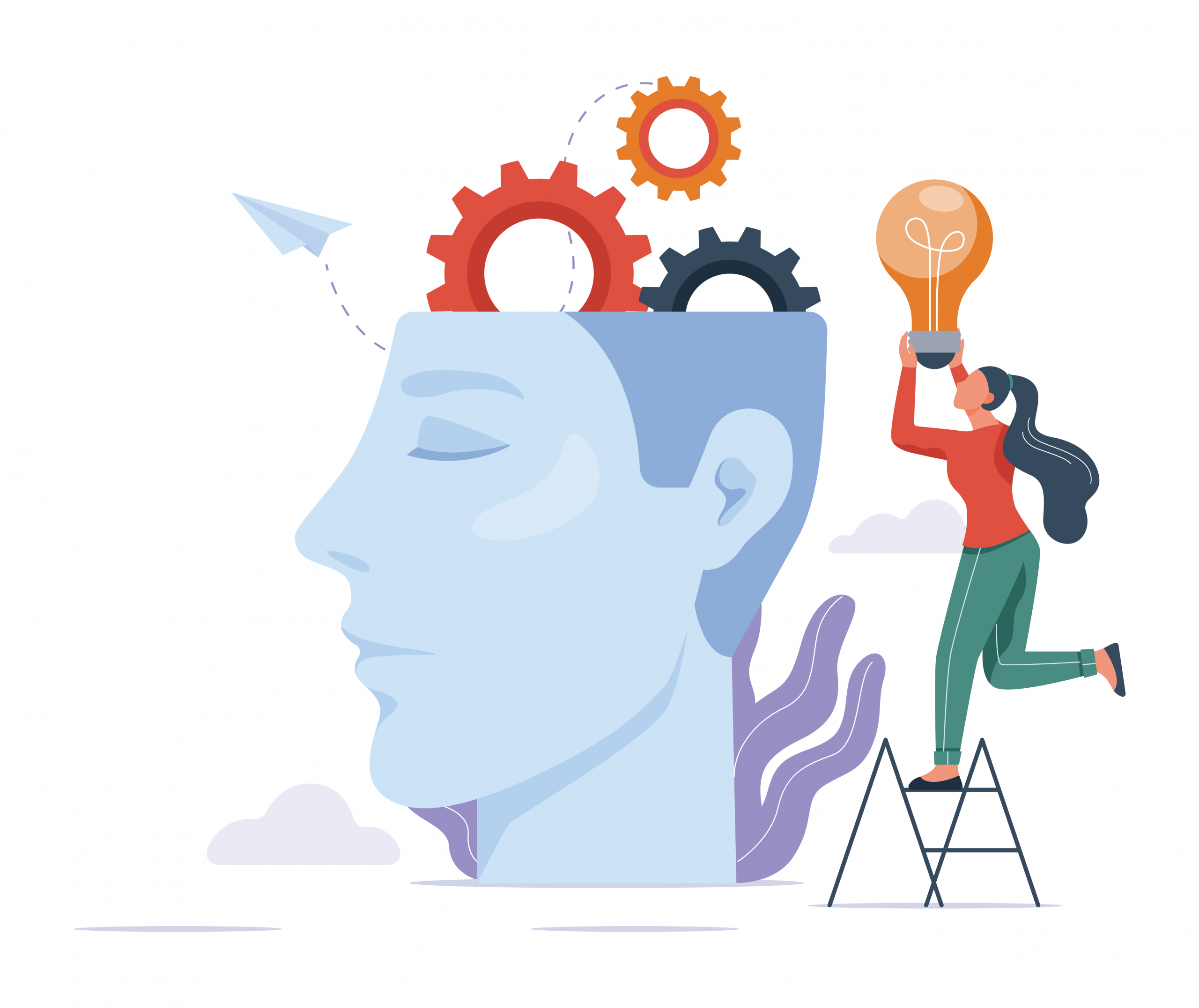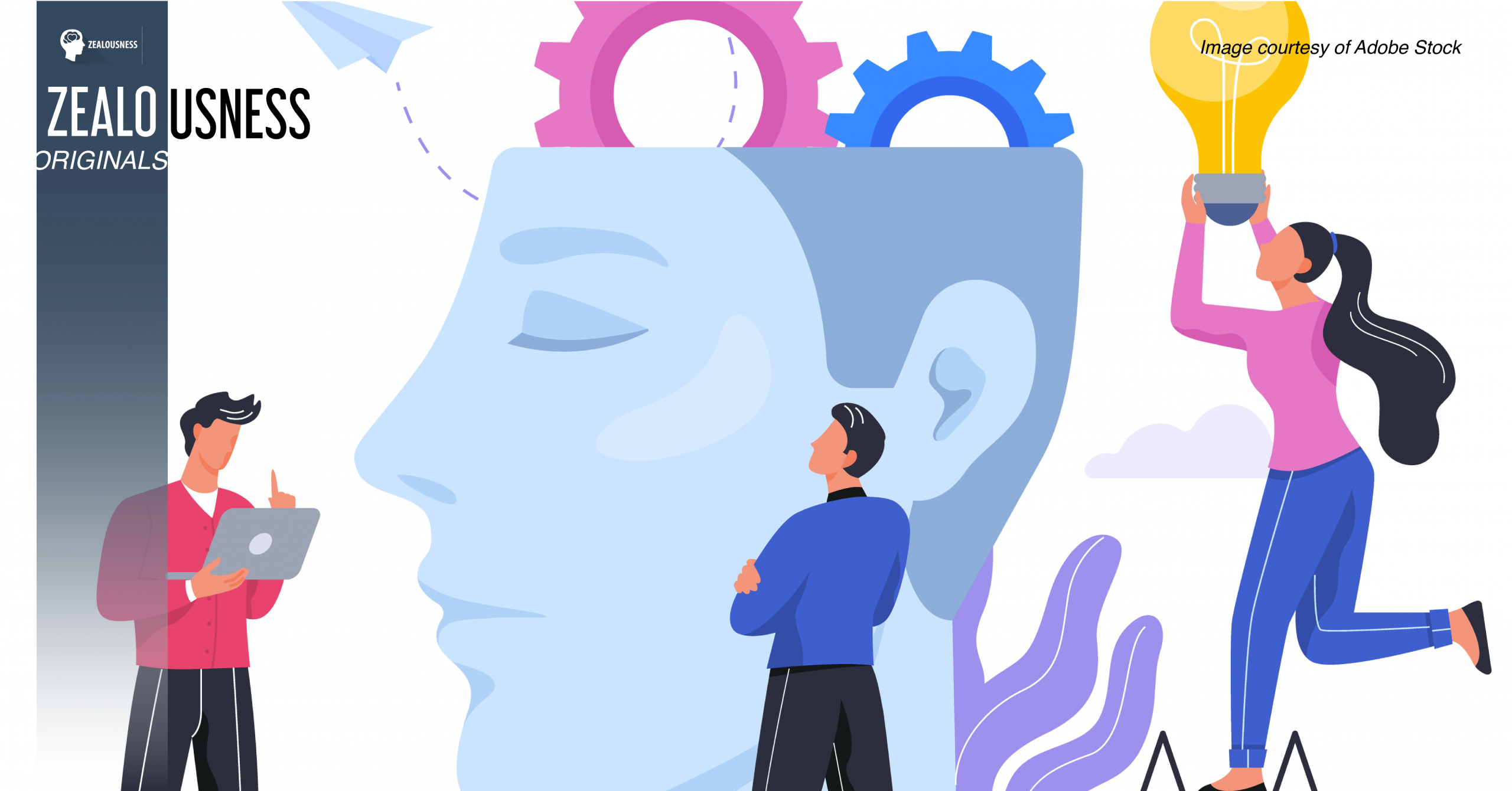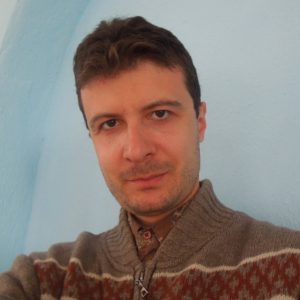“Knowing yourself is the beginning of all wisdom.” ~ Aristotle
The above saying is a very ancient one, but its meaning has not lost its value. The wisdom it conveys can find application in each one of us, in every activity of our everyday life, for every human being, no matter who they are, what social class they belong to, their gender, the professions they have, or their different skills, without excluding anyone. Even in our modern era, it can find application in everyday life and activities such as education, mental health, or the relationship we build with one another.
The meaning and importance of knowing yourself
But what does it mean to know yourself? How can we achieve that? Where will it lead ? How much does it matter in our everyday life? Learning to know yourself is a long journey. It consists of delving into your past and reflecting on how your life has evolved. The choices and decisions you have made, and what affected you to make those decisions. It means knowing and reflecting on the traits of your character and personality. Knowing yourself means knowing the real you, not just the one you present to the world. Living your life to the fullest cannot happen unless you know yourself and the position you deserve, or more appropriately, what you can achieve. Your character and values you have, your passions and fears, your strengths and weaknesses. During the journey of knowing yourself, you will find the true meaning of your life, you will learn the true wisdom which serves to live a successful and meaningful life.
The most important enterprise in your life is to be able to discover who you truly are. Many people live their lives without knowing or hearing the inner critic that gives wrong ideas about themselves. To find yourself might seem like an inherently self-centered goal, but in fact, it is the most decent process which is the root of everyday life activity. In our interactions with the people and the world, we have to know first our values and what we have to offer. It is a journey worth taking for all of us. It is a process that involves understanding and breaking down your defects which do not represent who you actually are, and recognizing who you want to be in order to fulfill your destiny. It means to recognize your values and skills, but without closing your eyes on your flaws. Finding yourself should not be something to fear.
A really good similitude for knowing yourself can be placing yourself on a journey where you definitely need a map to take that journey. Without it, you cannot succeed. Only those who know who they are and their true value in society cannot be disorientated by the different challenges and problems they will face in the journey of their life. This journey you are not going to do alone, you have to mingle yourself with people and cooperate with them. Knowing, accepting, and loving yourself is more important than trying to please the world and seeking their love and approval.
Understanding your values and life
To better understand and get to know yourself, it is important to understand your values and aspirations. You cannot move to action without having evaluated your situation first. Everything has its importance, whether it may be money, power, career, family, or status you want to have in society. If you need to make a decision your values will serve as a signpost to guide you where you want to go. Once everything is clear in your mind and you have set your goals for yourself, you can take that action, for as Toni Collete stated: “The better you know yourself, the better your relationship with the rest of the world.”

Techniques for knowing yourself
There are many techniques to know yourself, e.g personality tests, writing a journal, consulting a therapist, taking into consideration the opinions of those who love you and those who don’t or meditating on your life, your past, your childhood, your upbringing, the choices and decisions you made, the inner and outer factors. Meditation is a very old technique that has helped many human beings to find themselves, to heal their minds. Bryant McGill an American author has wisely stated “Connecting with yourself and knowing yourself is a monumental and life-changing event. To Buddhism practices, meditation can be a solution for our chaotic minds, emptying them of their content, to draw away the disturbing and unfocused objects of consciousness.
Philosophical meditation, on the other hand, wants our thoughts, feelings, and anxieties to trouble us less, it tries to sort out our minds in a different way. While Buddhist meditation tries to empty our minds of their negative content, philosophical meditation tries to clean these minds up: they want to bring the content that worries us more securely into focus, trying to calm us by having a better understanding of them rather than trying to evacuate. Philosophical Meditation brings us peace of mind not by removing issues, but by helping us to have a better understanding of them, therefore letting go of some of our paranoia and static that might cling to them. This technique does not make problems disappear, but they can assume a different proportion and can be managed. In a kind of way it helps you have a different approach toward them.
Reflecting on the past
Our past can reveal who we are, and the factors that led us to what we are today. If we don’t take the courage to explore our past, we cannot understand ourselves and become what we aspire. Research has shown that our experiences and how we make sense of them define who we become. Unresolved traumas from our history, explain our behavior today. Life story coherence has a “statistically significant relationship to psychological well-being.” Dr. Daniel Siegel explains that the more we form a “coherent narrative” of our lives, we will be better capable of making mindful, and conscious decisions in our present lives that represent our true selves.
The environment we grew up in, and the way parents and people have treated us as children affect ourselves in what we become. Painful life experiences quite often determine how we define and defend ourselves. In simple words they bend us out of shape, influencing our behavior in something we are not conscious of. For example, a harsh parent might make us feel more guarded. In adulthood, it can limit us in many areas. In order to break free from this pattern of behavior, we need to understand what causes it. A doctor or therapist can help you to know yourself, but he cannot make your journey for you, you have to look and reflect in your inner world, in your past, how you were treated, what were your reactions. Jaggi Vasudev has shared with us his precious and wise advice: “Knowing yourself has to always come from within. The outside can inspire or guide you, but knowing has to come from within you.”
Understanding yourself leading to a better understanding of others
Using a technique called mindsight, “Focusing attention which allows us to see the internal workings of our own mind,” Dr. Siegel was able to better understand his experiences, then talk to his son in order to repair the situation. He states that through this technique, he could use reflections from that conflict to reach a more clear insight from his own childhood experiences. In this way, the most challenging moments of our life can serve us to better understand ourselves and connect with others. This kind of thinking and willingness to face past memories give us valuable insight into our behavior. This would lead us to consciously break free from those harmful influences and alter our behavior to what we want to be in the world.
Carl Jung who is one of the most prominent figures in the science of medicine, specialized in the field of mental health, has given us insight on how knowing yourself can help heal ourselves and others. “Knowing your own darkness is the best method for dealing with the darknesses of other people. One does not become enlightened by imagining figures of light, but by making the darkness conscious. The most terrifying thing is to accept oneself completely. Your visions will become clear only when you can look into your own heart. Who looks outside, dreams; who looks inside, awakes.”
When you develop a better understanding of yourself, this will improve your capacity to understand better the thoughts and feelings of other people. Knowing yourself is not an ego journey, learning to place yourself in other people’s shoes is a useful social skill in daily life that could be important to gain and promote cross-cultural understanding in society. People say that when we will be able to know ourselves, then we can know the world. We can see the goodness in each other, and accept life the way it is, that we are truly connected human beings.
Change as a tool for developing yourself
We need to reflect on how we will change and adapt to a person who knows himself. It is obvious that what people know is known to them, but still, we might be able to identify something of what they know. If someone is well aware of who he is, his character with its positive and negative qualities, this would lead to a change in his behavior. Being self aware will have an impact on someone’s life. Self knowledge is not a set of statements that one gives assent to, but it is a set of capacities for dealing with life and the reality we live in. Someone who knows himself will not blame others for their troubles. They feel all the negative emotions, such as anger, anxiety, or becoming upset. But they do not find answers and explanations on outer factors and other people, rather they first take a look at themselves and what their responsibility is. They feel all the negative emotions in their life, they are not perfect, nor is their life perfect. They cope fairly well with criticism. Their great self-knowledge enables them to better face their fears. They can look deep into themselves and the evolution of their personality. What affected their decisions and the reasons behind them. Since they can understand themselves better, this leads to gaining a better understanding of others as well. Knowing yourself means to understand all the traits of your personality, and accept them for what they are. It means accepting life for what it is.
A well-known psychologist, Virginia Satir has shared with us her knowledge and wisdom about knowing ourselves and whose responsibility it is to achieve that. She perfectly stated: “I am me. In all the world, there is no one else exactly like me. Everything that comes out of me is authentically mine, because I alone chose it — I own everything about me: my body, my feelings, my mouth, my voice, all my actions, whether they be to others or myself. I own my fantasies, my dreams, my hopes, my fears. I own my triumphs and successes, all my failures and mistakes. Because I own all of me, I can become intimately acquainted with me. By doing so, I can love myself and be friendly with all my parts. I know there are aspects about myself that puzzle me, and other aspects that I do not know — but as long as I am friendly and loving to myself, I can courageously and hopefully look for solutions to the puzzles and ways to find out more about me. However I look and sound, whatever I say and do, and whatever I think and feel at a given moment in time is authentically me. If later some parts of how I looked, sounded, thought, and felt turn out to be unfitting, I can discard that which is unfitting, keep the rest, and invent something new for that which I discarded. I can see, hear, feel, think, say, and do. I have the tools to survive, to be close to others, to be productive, and to make sense and order out of the world of people and things outside of me. I own me, and therefore, I can engineer myself. I am me, and I am okay.”
Conclusion
The problems we deal with in everyday life are the challenges of the reality we live in; to find their solutions, we must first look for them inside us. If we know ourselves, we can improve our character, who we are, and where we want to be. We can create better relationships with the outside world. Within ourselves, we can find the long-awaited answers to our questions. Man faces plenty of challenges and problems in his course of life. It is up to him to turn them to his advantage. The optimist always sees for every problem an opportunity, while the pessimist sees an obstacle in every possibility. You must not blame the outside world for every failure of yours when your inner world is destroyed. The more you know yourself, the easier it is to develop yourself and your potential. You have to know yourself with its positive aspects and flaws; you have to understand yourself first, then you will be able to understand the people around you properly. Only then will you see reality for what it truly is. Improvement cannot happen without knowing, understanding, and accepting who you are, neither living a meaningful life.
We will conclude with the wise words of Maulana Rumi that summarize all we tried to explain: “Everything in the universe is within you. Ask all from yourself.”
References:
- A Guide to Finding Yourself, SELF DEVELOPMENT, BY PsychAlive, https://www.psychalive.org/finding-yourself/.
- Aristotle quoted in goodreads, “Knowing yourself is the beginning of all wisdom.” https://www.goodreads.com/quotes/3102-knowing-yourself-is-the-beginning-of-all-wisdom
- Carl Jung, quoted in AZQUOTES, https://www.azquotes.com/author/7659-Carl_Jung/tag/darkness
- Collete, Toni. ”The better you know yourself, the better your relationship with the rest of the world.”Quotes>Authors>T>Toni Collete, AZQUOTES, https://www.azquotes.com/quotes/topics/know-yourself.html
- Daley, Terri. Want to be happy ? Try to get to know your self, THE CONVERSATION. https://theconversation.com/want-to-be-happier-try-getting-to-know-yourself-109451
- Divinity, Jeremy. Know Thyself: A Short Essay on The Importance of Knowing, medium.com Apr, 3 2017. https://medium.com/@jeremydivinity/know-thyself-a-short-essay-on-the-importance-of-knowing-4f9a92255236
- Jaggi Vasudev. “Knowing yourself has to always come from within. The outside can inspire or guide you, but knowing has to come from within you.” quotefancy.
- https://quotefancy.com/quote/1534421/Jaggi-Vasudev-Knowing-yourself-has-to-always-come-from-within-The-outside-can-inspire-or#:~:text=…%E2%80%9D%20
- Jensen, Maria. How to know yourself and seek self improvement, Lifehack, November 4, 2020. https://www.lifehack.org/822901/know-yourself-and-seek-self-improvement
- Know Yourself, Self Knowledge, THESCHOOLOFLIFE, \https://www.theschooloflife.com/thebookoflife/know-yourself/
- McGill, Bryant. “Connecting with yourself and knowing yourself is a monumental and life changing event” Quote Master https://www.quotemaster.org/qc558fb955d532337c3774514873600e0
- Nierenberg, Cari. Knowing Yourself: How to Improve YourUnderstainding of Others, LIVESICIENCE, June 02, 2017. https://www.livescience.com/59349-knowing-yourself-helps-your-understand-others.html
- Rawat, Prem. The Importance of Knowing yourself, TimelessTodayt, Oct 09, 2019 https://www.timelesstoday.tv/the-importance-of-knowing-yourself
- Rumi quote, Everything in the universe is within you. Ask all from yourself.” Goodreads https://www.goodreads.com/quotes/121070-everything-in-the-universe-is-within-you-ask-all-from
- The Importance of Knowing Yourself, habitsforwellbeing, https://www.habitsforwellbeing.com/importance-knowing/
- The Importance of Knowing Yourself, THEHELLYEAHGROUB, December 5, 2016. https://thehellyeahgroup.com/blog/2016/6/28/the-importance-of-knowing-yourself
- Virginia Satir quoted in goodreads, https://www.goodreads.com/author/quotes/312508.Virginia_Satir#:~:text=%E2%80%9CI%20am%20Me.,be%20to%20others%20or%20myself.























